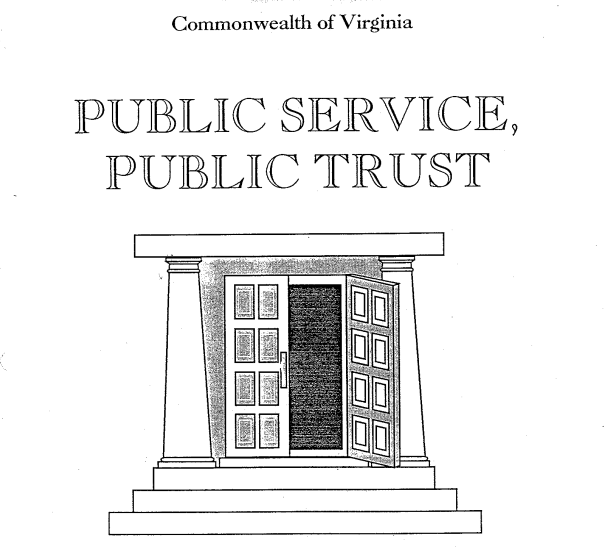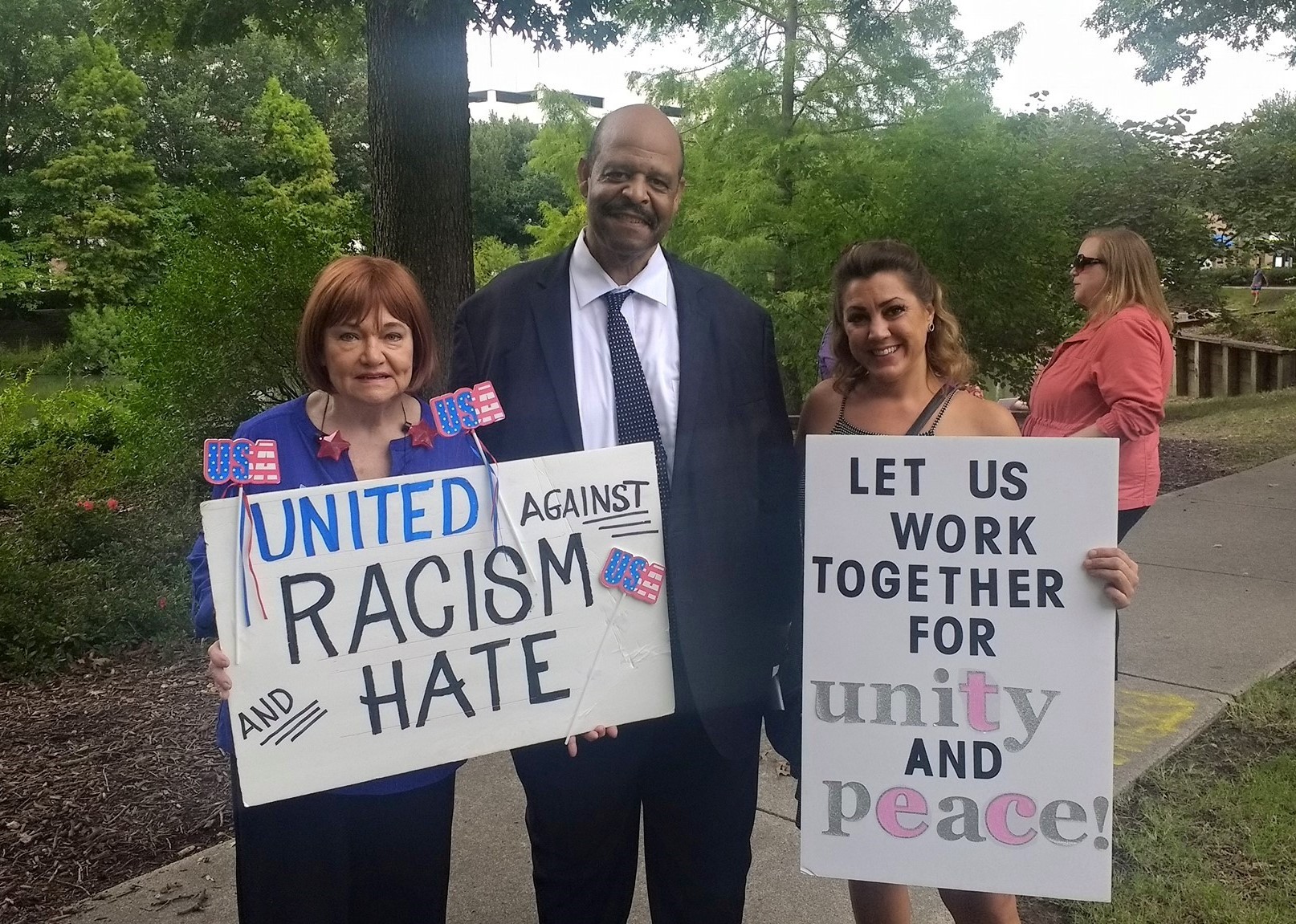What a difference a year makes. This time last year there was a sense that comprehensive immigration reform at the federal level may happen in some form. It would be sweeping and, like any compromise, not exactly what everyone wanted. Now we have something worse: only the noise of recrimination.
The Virginia Coalition for Immigrant Rights (VACIR) met last year to map out the values and principles held by Virginians and provide a voice to Congress. But now what since reform appears dead in the water? Well, during the Obama administration, more than 2 million mothers, fathers, brothers, sisters, and children have been deported; more deportations than in any previous administration. That number is hard to wrap your head around and does not convey the individual personal tragedies involved. For example, Immigration and Customs Enforcement (ICE) reports 72,410 of those deported said that they had one or more U.S. born children. Tens of thousands of U.S. citizens, then, have had their parents deported. So the VACIR has changed its tact and directed its energy toward pressuring the Obama administration to act since the House of Representatives has failed in its responsibilities. They are also looking at ways state legislators can address the issues.
11% of Virginians were born outside the United States. They, like all Virginians, need the tools and opportunities necessary to build strong families, healthy communities, and a culturally and economically thriving Virginia. For now VACIR is focused on four key areas:
- Comprehensive Immigration Reform at the Federal level
- ICE detainers And local immigrant detention policies
- Access to Virginia driver’s licenses
- Deferred Action for Childhood Arrivals (DACA) and in-state tuition
Where do we even begin with Federal reform? The well is poisoned. I will disclose that my bias on this matter begins and ends with the Republican Party, Ronald Reagan, Simpson-Mazzoli, and close personal experiences with immigration and naturalization. Some 3 million immigrants were granted amnesty in 1986. That is the precedent that those who are angry should focus on when crying about today’s “failed policies.” And the fact is that the reason for the current flood is not anything President Obama has done but a more pedestrian cause: it’s the economy stupid; the economy in Honduras, El Salvador and the rest of Central and South America. Places where we meddled, then abandoned; the spawn of Ronald Reagan’s foreign policy abetted by Ollie North and “company.”
So, what is clear is that Republicans do not want a strategy. They want things like a wall at the border. They want stronger employment verification. You can build a wall to the moon along the Mexican border, but that will only change the route into the United States and increase sales of cigarette boats. And they simply do not understand the economics of a free market for labor as black as that market may be. So instead of comprehensive reform they prefer to grandstand at the border. Both of these proposals are immoral for the additional harm they will do migrants, but it may require bending to those fantasies in order to get any sort of compromise.
What is being proposed would involve a sophisticated set of conditions that will be no easier to enforce than current policy unless there is rigor and the administrative support required to enforce it. Current legislation for a pathway to citizenship, Senate bill 744, includes creating an initial status termed registered provisional immigrant (RPI). This is not a lawful permanent residence status. The initial term for this status will be 6 years and renewable in 6 year increments. At the tenth year in this status, the individual would be eligible to apply for permanent resident status. The path proposed in legislation for Dreamers would be somewhat different. The initial status would be provisional for 5 years after which permanent status may be sought. Agricultural workers would be treated similarly with an RPI of 5 years required before permanent status. These RPI statuses are not green card and may be designated as blue or red card statuses.
In response to Senate Bill 744, passed June 27, 2013, the House has offered up a modified version of SB 774 (HR 15) and a cacophony of ad hoc proposals:
- HR 15 – Independently introduced Oct 2, 2013 – Border Security, Economic Opportunity, and Immigration Modernization Act
- HR 2278 – Voted out of Judiciary Jun 6, 2013 – Strengthen and Fortify Enforcement (SAFE) Act
- HR 2131 – Voted out of Judiciary Jun 27, 2013 – Skills Visa Act
- HR 1773 – Voted out of Judiciary Jun 19, 2013 – Agricultural Guestworker Act
- HR 1772 – Voted out of Judiciary Jun 26, 2013 – Legal Workforce Act
- HR 1417 – Voted out of Homeland Security May 15, 2013 – Border Security Results Act
- HR 3431 – Independently introduced Oct 30, 2013 – American Families United Act
- HR 3163 – Independently introduced Sep 20, 2013 – Comprehensive Immigration Reform ASAP Act
- HR 2377 – Independently introduced Jun 14, 2013 – Encourage New Legalized Immigrants to Start Training (ENLIST) Act
- HR 4178 – Independently introduced Mar 6, 2014 – American Entrepreneurship and Investment Act
- HR 4178 – Independently introduced Mar 26, 2014 – Border Enforcement Accountability, Oversight, and Community Engagement Act
- Synopsis available at the American Immigration Council website
Let’s see…HR 2278 empowers local police forces to enforce federal law with regard to immigration policy; HR 2131 would allow persons entering the United States on student visas to apply to remain in the United States; HR 1773 and 1772 are intended to verify presence for employment; HR 1417 requires the southwestern border to be secured within 5 years… you get the idea, a lot of noise and heat and no traction. Many are complicated, punitive, and contradictory; the very epitome of reactionary. The House bills do not solve any real problems.
 Marco Grimaldo of the Virginia Interfaith Center for Public Policy also addressed unattended minor migrants at the Central Virginia Regional Meeting of the Virginia Coalition for Immigrant Rights in Charlottesville last weekend. While it took until recently for this issue to become widely publicized, it isn’t new. 52,000 entered the U.S. between January and June 2014 (more than twice 2013). 37,000 are in the Rio Grande Valley. More than 75% are from Guatemala, Honduras, and El Salvador.
Marco Grimaldo of the Virginia Interfaith Center for Public Policy also addressed unattended minor migrants at the Central Virginia Regional Meeting of the Virginia Coalition for Immigrant Rights in Charlottesville last weekend. While it took until recently for this issue to become widely publicized, it isn’t new. 52,000 entered the U.S. between January and June 2014 (more than twice 2013). 37,000 are in the Rio Grande Valley. More than 75% are from Guatemala, Honduras, and El Salvador.
Again, the reality is that these children are in our care. This is something that the federal government does not know how to handle. The Federal Emergency Management Agency is handling the on the ground housing emergency. Increasingly the Department of Defense is committing military assets to provide facilities.
Unattended children are given the benefit of the doubt until their status can be determined and they are cared for by the Office of Refugee Resettlement (ORR). 85% of children under care of ORR are released to family or friends while awaiting immigration proceedings. Children not placed with family or friends are placed with non-profits in facilities like the one proposed for Lawrenceville.
Which children may stay in the United States? Asylum may be granted if there is a reasonable fear of persecution or torture in their home country. If the child fled abandonment, neglect, or abuse they can get Special Immigrant Juvenile (SIJ) status. If a victim of human trafficking, they are eligible for a “T” visa.
In the meantime, as Lowell reported last week, we are not demonstrating our better side. This is true at the federal level and on the more personal level. Children, no matter where they were born, should not be political pawns. And we should stop deportation, stop separating families until there is comprehensive reform. Period. So there you have maybe more than you wanted to know. But as you will see, there is so much more.














